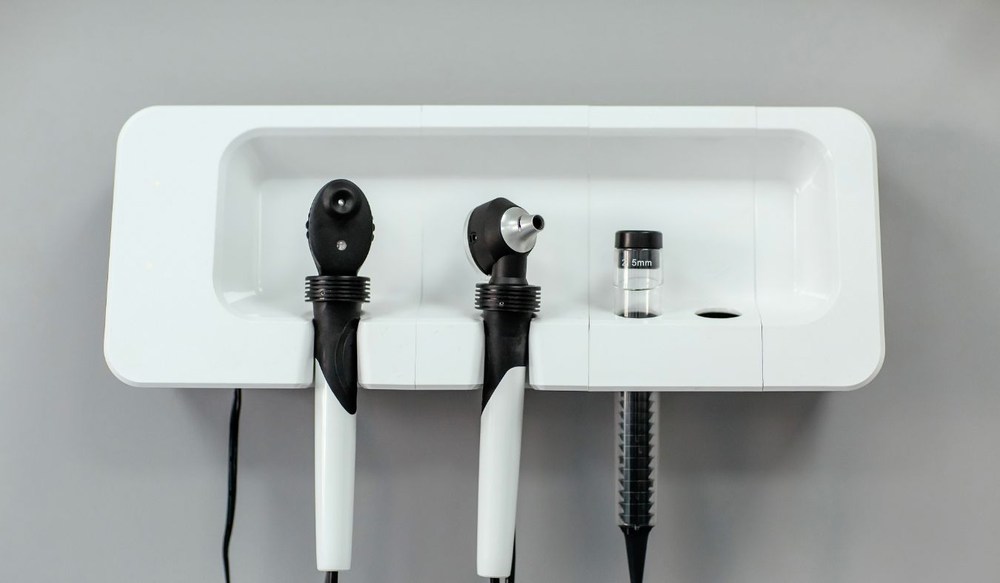The Role of Hearing Tests in Preventative Health Care
Most people schedule regular checkups for their teeth, eyes and overall

By: admin | February 28, 2024
Hearing loss might seem like a huge challenge, but with the right guidance, it becomes a hurdle you can confidently clear. This is where hearing assessments come into play. Conducted by skilled audiologists, these tests help determine the extent of your hearing loss, guide the selection of suitable hearing aids, and shape a personalized treatment plan to reconnect you with the world around you. Let’s dive into the world of hearing assessments and understand their role in your path towards improved hearing health.
Hearing assessments are instrumental in identifying the type and degree of your hearing loss. Conducted by trained audiologists, these evaluations shed light on your current auditory health and lay the groundwork for effective treatment strategies.
These assessments are thorough, covering various aspects of your auditory system. They include tests that measure your ability to hear different frequencies and volumes, as well as your speech understanding in quiet and noisy environments. In essence, these assessments create a detailed picture of your hearing capabilities, which is vital for creating a personalized plan to enhance your hearing health. It’s also important to note the value of ongoing care that follows these assessments. Regular follow-ups ensure any changes in your hearing are promptly addressed, ensuring you continue to receive optimal care for your unique needs.
Preparing for your upcoming hearing assessment and wondering what to expect? It’s a common concern, but understanding the process can help ease any nerves.
First off, there’s no need for worry. Hearing assessments are non-invasive procedures selected and ran by a hearing professional who will guide you through each step of the process, ensuring your comfort and understanding.
Also, consider jotting down any questions or concerns you might have before your appointment. This way, you won’t forget to bring them up during your consultation. This assessment isn’t just about diagnosing your hearing loss; it’s also an opportunity for you to learn more about your auditory health.
Hearing specialists are integral when having your hearing tested. They conduct the assessments and interpret their results, providing you with a much clearer picture of your hearing health. Their expertise and skills are vital in accurately diagnosing your hearing loss and developing an effective treatment plan.
Hearing specialists bring a wealth of knowledge and experience to their work. They undergo rigorous training to understand the complexities of the auditory system and how different factors can impact your ability to hear. Their role extends beyond conducting assessments; they also guide you through your treatment process, ensuring that you receive care tailored to your specific needs. With their support, you’re not just addressing your hearing loss – you’re taking proactive steps towards better overall health.
The initial consultation process is the first step of your path towards better hearing health. It provides an overview of what to expect moving forward, much like a map guiding a hiker through unfamiliar terrain.
In this meeting, you’ll discuss your hearing concerns with a specialist, who will then perform a series of tests to understand the extent of your hearing loss. The results from these tests will be used to develop an individualized treatment plan that caters specifically to your needs. This comprehensive approach ensures that you receive optimal care tailored just for you, setting you on the right path towards improved hearing health.
Understanding the different types of hearing tests can help alleviate any apprehension about the testing process and allows you to be more involved in your own hearing health care.
Audiologists may conduct several kinds of hearing tests:
After your hearing assessment, you’ll be presented with an audiogram. This is a visual representation of your hearing ability across different frequencies and volumes. It might seem a bit complex at first glance, but it’s not as daunting as it may appear.
The horizontal line on the audiogram represents different frequencies (or pitches), while the vertical line shows the volume levels at which you can hear these frequencies. The results of your hearing test are plotted on this graph, providing a clear picture of your hearing abilities.
Understanding your audiogram is an empowering step towards managing your hearing health. Your hearing specialist will guide you through every detail of the audiogram, ensuring that you fully understand what each element signifies about your auditory health. You’re taking charge of your well-being and making informed decisions about your treatment plan – and that’s something to be proud of!
Your hearing test results play a significant role in choosing the right hearing aid for you. These results, plotted on your audiogram, provide valuable insights into the type and degree of your hearing loss. This information is crucial in determining which hearing aids will be most beneficial for you.
Remember, these are just guidelines. Your personal comfort and lifestyle needs are equally important considerations when selecting a hearing aid. The goal is to choose a device that not only improves your auditory health but also enhances your overall quality of life.
Audiologists develop personalized treatment plans based on your specific needs, much like a chef carefully selects ingredients to create a meal tailored to your taste. This approach ensures that you receive the most effective care, designed with your unique hearing profile in mind.
The customization of your treatment plan is guided by the results of your hearing assessment. These results provide insights into the type and degree of your hearing loss, allowing professionals to select strategies and devices best suited for you. This personalized approach means you’re not just getting generic care – you’re getting a solution designed just for you!
Taking the next step after your hearing assessment can feel like a big leap, but it’s a positive stride towards improved hearing health. With the support of audiologists and a tailored treatment plan in hand, you’re well-equipped to enhance your auditory abilities and continue engaging with the world around you. Every step you take is a move towards better communication and an improved quality of life. Keep moving forward; enhanced hearing health is within your reach!
Audiologists deal with various hearing issues, and sometimes, a simple ear cleaning does the trick. When it comes to excess earwax, they’ve got different ways to handle it. There’s microsuction, which uses a gentle suction device to remove wax without water, ensuring it’s not uncomfortable. Then there’s irrigation, where they use a gentle stream of warm water to help the ear get rid of the wax naturally. If needed, they’ve got tools like loops or spoons to manually take care of it. Each method is chosen based on what works best for the individual, making sure they not only get immediate relief but also keep their ears healthy for the long haul. Following this quick procedure, patients often experience significant improvements in their hearing.
<p>In cases where hearing loss is associated with inner ear or auditory nerve damage, audiologists play a vital role in recommending and fitting <a href=”https://audioandhearing.com/hearing-products/”>modern hearing aids</a>. These devices, unlike the bulky models of the past, are sleek, discreet, and technologically advanced – sometimes nearly invisible.</p>
Hearing aids come in various styles, each designed to cater to different preferences and needs. for those who prefer discreetness, invisible-in-canal (IIC), completely-in-canal (CIC), and in-the-canal (ITC) options sit snugly within the ear, offering subtle amplification without drawing attention. on the other hand, behind-the-ear (BTE) models house the main components in a casing worn behind the ear, connected to a custom earpiece. In-the-ear (ITE) devices occupy the outer portion of the ear and are slightly larger than their in-the-canal counterparts. The diversity in styles ensures that individuals can choose the one that aligns with their comfort, hearing requirements, and aesthetic preferences.
Audiologists take the time to understand patients’ preferences, ensuring they receive the right equipment tailored to effectively address their conditions within a reasonable price range.
After understanding the process of hearing assessments, you might be wondering what’s next. The path to better hearing health is not one you need to walk alone. At Audio and Hearing, our team of dedicated hearing specialists is ready to assist you at every step of your journey. We’re here to answer your questions, conduct comprehensive hearing assessments, and develop personalized treatment plans tailored specifically for your needs.
We invite you to reach out and take the first step towards improved auditory health. Our locations are conveniently spread across New Jersey:
Taking action is the first step towards overcoming challenges associated with hearing loss. Reach out today – because at Audio & Hearing, we believe that everyone deserves the joy of clear sound.
Tags: audiology services

Most people schedule regular checkups for their teeth, eyes and overall
By: admin | October 20, 2025

Getting caught in the rain or sweating during a workout used to mean panic
By: admin | July 29, 2025

Most people know that aging and loud noise can affect hearing, but not
By: admin | June 20, 2025
